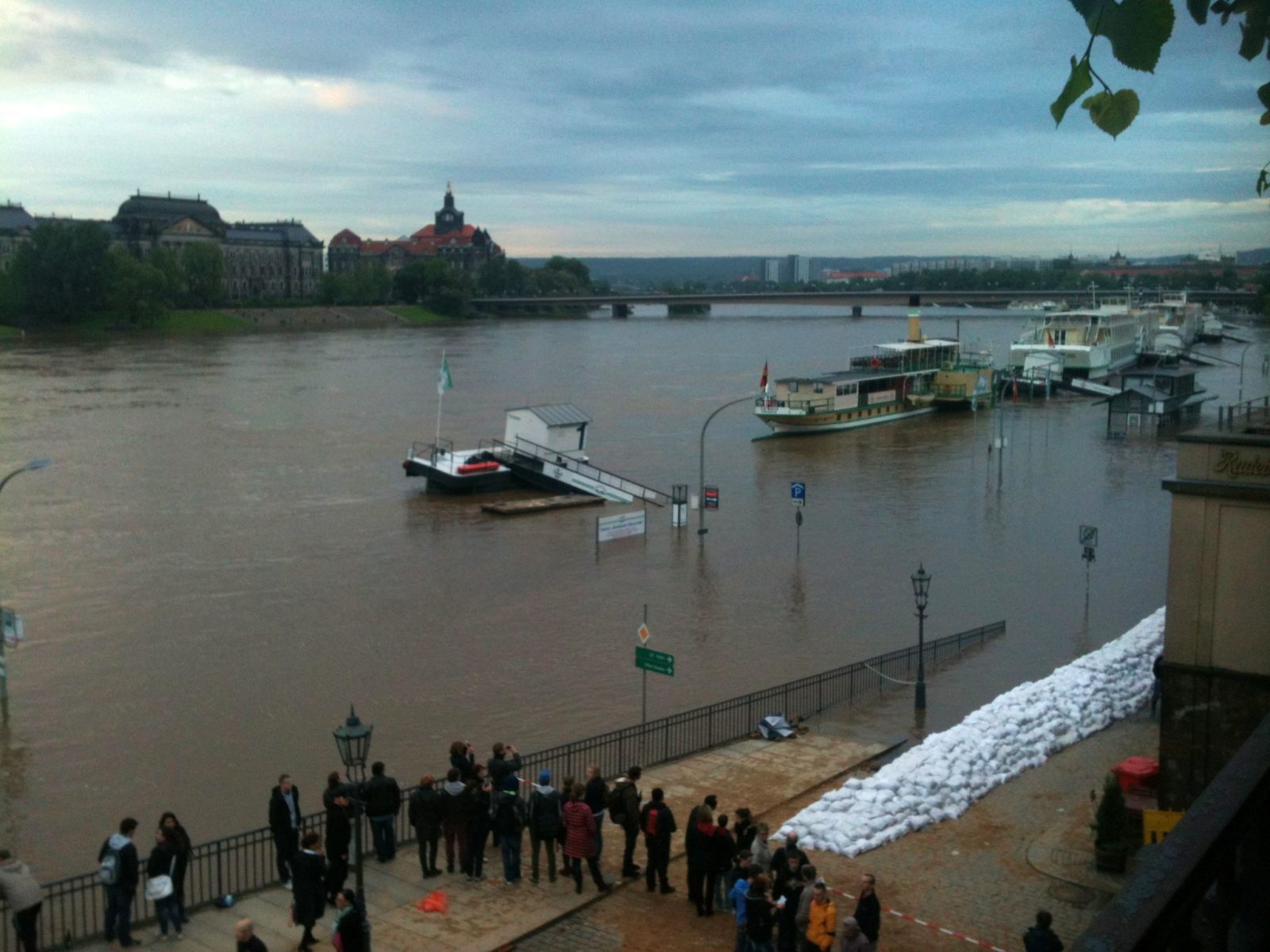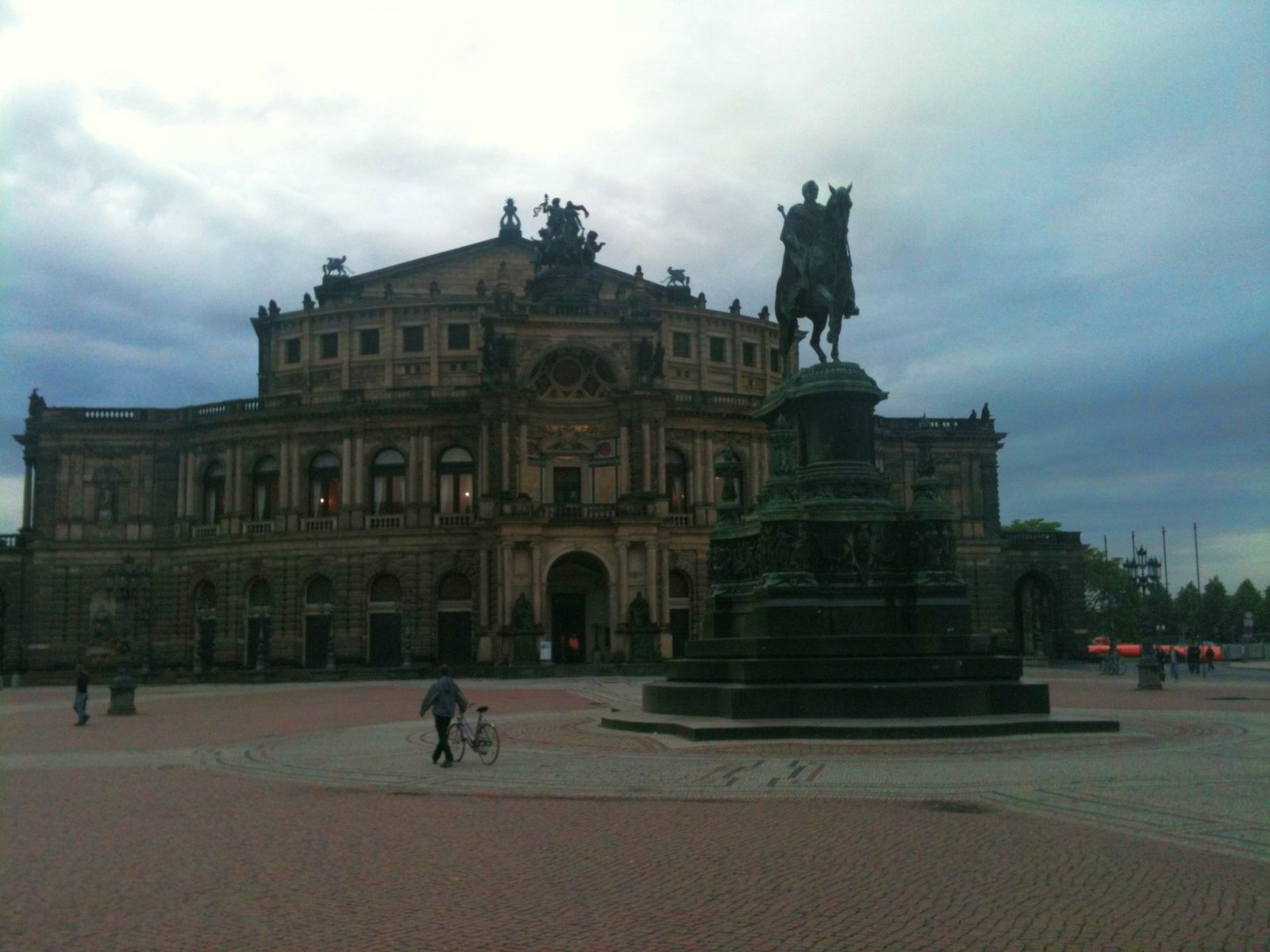There was a time when journalists played the part of an “ambulance chaser;” ink-stained scoop-hunters would rush to see which building burned; what criminal was nabbed; what neighborhood was afflicted. With technology, newsrooms could selectively send reporters out depending on what seemed most newsworthy on the scanner. I have never been on such a beat where I had to be so on the spot for news. Much of public radio reporting’s strength is in its analysis, and ability to pull back from the news frenzy. Rushing to report is often how mistakes are made, yet time is often of the essence.
Even if I am not often covering the breaking news, I still follow it, even when I am on vacation. On a recent trip to Germany my troupe decided for a quick trip to Dresden, a lovely city in Germany’s East. We happened to arrive in early June just as storms were ripping through Central Europe. I turned on MDR, central German public television, in our hotel room before a planned walk to the River Elbe near the Altstadt (old town.) The Elbe was flooding then, but not as bad as other rivers. Dresden was affected, as were Leipzig and Passau, Prague, and many small villages between. Dresden was affected but not terribly, according to the news. We had just arrived, and a steady stream of emergency vehicles rushed outside our hotel window; a convoy of five German Red Cross vans sped back and forth.
There was only one thing for a vacationing reporter with family to do in such a situation: go for a walk and see what’s happening.

It had been raining, obviously, but as we made our way to the Frauenkirche and castle in the old town the rain had become like a spritz. We walked toward the River Elbe and could see right away something was wrong. A pedestrian path along the river was replaced by murky water. A ticket office for the ferry companies–which we had hoped to ride–was submerged. Workers had frantically filled sandbags to protect a restaurant just out of the water’s reach. Tourists lined up at the sandbags, and along the bridge near the ferries, to take pictures and take in what was happening.
Occasional debris floated by: trees, branches, unknown items. The famous opera house in Dresden was well out of reach of the flooding, but emergency crews erected inflatable barriers anyway. There was no telling how bad the rains would fall in the coming days.

An orange barrier can be seen on the right of the Opera House. Police had blocked off part of the road.
As we left Dresden on our way back to Berlin, our train followed various waterways and all of them were flooded. It felt wrong to see so much water; to see so many sheds and farmhouses surrounded by muddy liquid. More than 20 people died in the flooding and storms, and communities are still dealing with the aftermath.
For some journalists, news is part of who they are. For others it is just a job. I tend to fall into the first category, in which I am interested to know what is happening around me and why, even while on vacation. I feel that information often makes me a little more a part of a community, even when I am truly just a visitor or tourist.


